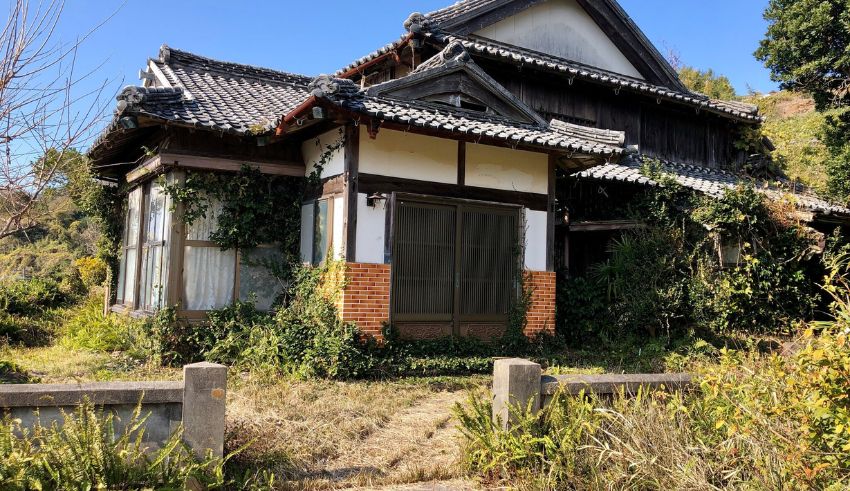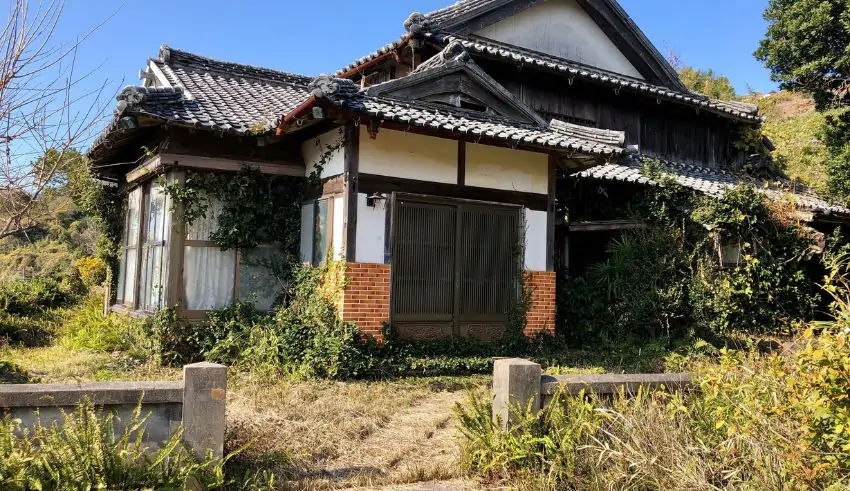

(C) The New York Times
Part of the reason for the more than 9 million ‘akiya’ homes—13.8% of all residential properties in Japan—that remain empty after owners pass away is population decline, according to a recent study. But other families argue about what to do with the property or are just unable to finance the expensive demolition.
There are boarded windows, fading paint, and a terribly overgrown yard. Rather than being redeveloped, this one-story property in the affluent Negishi neighborhood of Yokohama, south of Tokyo, has been allowed to slowly deteriorate for more than ten years.
According to a recent report released by the internal affairs ministry on Tuesday last week, the building, which was formerly the residence of an old woman, is one of over 9 million unoccupied properties around Japan. One third of all residential properties in the nation are represented by the record high number.
When their senior residents pass away or go into retirement homes, these akiya, or “empty houses,” are left abandoned. Sometimes the surviving family members cannot afford the expensive destruction and do not want to move into the houses. Many times, inheritors are either unable to be located at all or, if they are, quarrel over how the property should be divided.
The “primary reason” why homes in Japan are left empty, according to Pacifica Capital KK founder Seth Sulkin, “is that the population outside Tokyo is falling rapidly, especially in areas such as Tohoku and Hokkaido, and old people are simply abandoning their homes”.
“The inheritance and property title systems in Japan make recycling these properties extremely difficult,” he told This Week in Asia.
In Japan, a deceased person’s spouse is legally entitled to half of a property; their children receive the remaining portion. Sulkin says there isn’t a solution, though, if an inheritor can’t be found or won’t sell their portion.
Previously mostly observed in rural regions most impacted by the deteriorating population reduction, akiya are becoming more and more common in the suburbs of large cities. Local officials were empowered in December to remove tax credits from owners who neglect to take the required steps to preserve the buildings and stop their collapse in an attempt to slow the number of abandoned residences.
The concept is to persuade owners to either sell the land to developers who will use it better or to fix and occupy the houses.
“It can be complicated when people die and no one wants their home and yes, it sounds strange but it can be difficult to work out who owns these places,” he said. “The government has started to move, though, as they have realized they are losing out on tax revenues.”
Part of the problem is that Japan lacks an established model like the practice referred to in Britain as “buy-to-let”, whereby smaller investors rent out a handful of flats. Larger corporations dominate the rental and development markets instead.
In 2020, Anton Wormann bought a tumble-down akiya that had been empty for more than a decade and transformed it into a cozy property that he now rents out on Airbnb.
Wormann, who is originally from Sweden, said he was walking past the 100-year-old building one day and started talking to the four siblings who had inherited the property and were trying to tidy it up.
When he suggested he would like to buy it, they responded, “Really? You want to buy this piece of rubbish?” he recalled.
The family had no desire to redevelop the site and was keen to dispose of the building, in the hip Sangenjaya district of west Tokyo, so the transaction was relatively straightforward.
Gutting the interior and installing an entirely new kitchen, modern bathroom, living space and bedrooms took a year – and a sizable chunk of his savings. But Wormann says he learned a lot from the experience, and admits he’s been bitten by the bug.
“I have been working on another akiya in the Shinjuku district and I am hoping to have it ready in about five months,” he said, estimating he will have spent 25 million yen (US$159,000) on the project, including the initial purchase price, by the time it’s completed.
“I see huge potential in the akiya sector in Japan,” he said. “It is cheap to buy homes here and, if you wanted, you could buy an entire village in the most remote parts of the country. But it can be hard to sell up again, so it is better for someone who is planning to stay in Japan for a long time.
“I also think there are a lot of opportunities for akiya in the tourism sector and as a way of helping rural parts of Japan to survive.
If you happen to breathe K-drama, then your 'May 2025' will most likely be well-rendered into a month! Romantic sagas,…
Since yesterday, May 2, 2023, at the Mall of Asia Arena in Pasay, Ahtisa Manalo has demonstrated her brilliance by…
“you’re nothing but a trying hard copycat” Character- Lavinia Arguelles Film- Bituing Walang Ningning (1985) Context- Lavinia confronts her rival…
During the first months of 2025 WWE released several prominent wrestlers who were part of their talent roster. Professional wrestling…
Seventeen year old sprint prodigy Rin Kubo continues to make athletic history in Japan. At the Shizuoka International Athletics Meet,…
NextRise 2025-the biggest startup and tech event in Asia-is ready to take place in Seoul on June 26-27 at COEX,…
This website uses cookies.
Read More